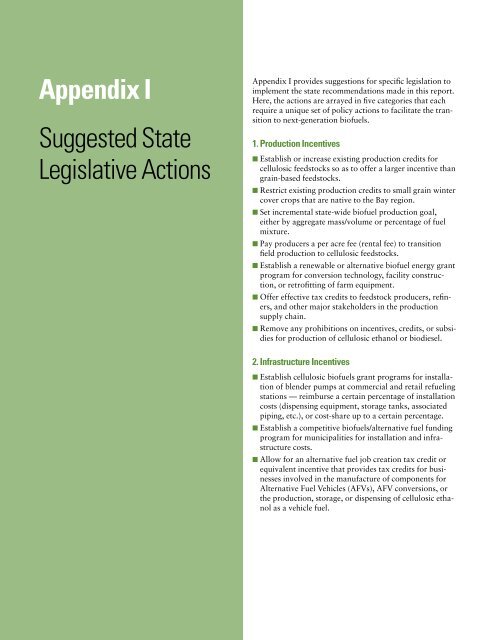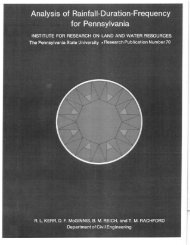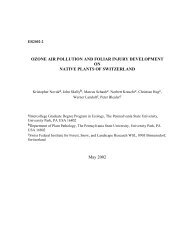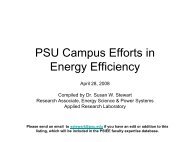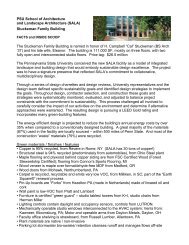Next-Generation Biofuels - Penn State Institutes of Energy and the ...
Next-Generation Biofuels - Penn State Institutes of Energy and the ...
Next-Generation Biofuels - Penn State Institutes of Energy and the ...
Create successful ePaper yourself
Turn your PDF publications into a flip-book with our unique Google optimized e-Paper software.
30 NEXT-GENERATION BIOFUELS<br />
Appendix I<br />
Suggested <strong>State</strong><br />
Legislative Actions<br />
Appendix I provides suggestions for specific legislation to<br />
implement <strong>the</strong> state recommendations made in this report.<br />
Here, <strong>the</strong> actions are arrayed in five categories that each<br />
require a unique set <strong>of</strong> policy actions to facilitate <strong>the</strong> transition<br />
to next-generation bi<strong>of</strong>uels.<br />
1. Production Incentives<br />
■ Establish or increase existing production credits for<br />
cellulosic feedstocks so as to <strong>of</strong>fer a larger incentive than<br />
grain-based feedstocks.<br />
■ Restrict existing production credits to small grain winter<br />
cover crops that are native to <strong>the</strong> Bay region.<br />
■ Set incremental state-wide bi<strong>of</strong>uel production goal,<br />
ei<strong>the</strong>r by aggregate mass/volume or percentage <strong>of</strong> fuel<br />
mixture.<br />
■ Pay producers a per acre fee (rental fee) to transition<br />
field production to cellulosic feedstocks.<br />
■ Establish a renewable or alternative bi<strong>of</strong>uel energy grant<br />
program for conversion technology, facility construction,<br />
or retr<strong>of</strong>itting <strong>of</strong> farm equipment.<br />
■ Offer effective tax credits to feedstock producers, refiners,<br />
<strong>and</strong> o<strong>the</strong>r major stakeholders in <strong>the</strong> production<br />
supply chain.<br />
■ Remove any prohibitions on incentives, credits, or subsidies<br />
for production <strong>of</strong> cellulosic ethanol or biodiesel.<br />
2. Infrastructure Incentives<br />
■ Establish cellulosic bi<strong>of</strong>uels grant programs for installation<br />
<strong>of</strong> blender pumps at commercial <strong>and</strong> retail refueling<br />
stations — reimburse a certain percentage <strong>of</strong> installation<br />
costs (dispensing equipment, storage tanks, associated<br />
piping, etc.), or cost-share up to a certain percentage.<br />
■ Establish a competitive bi<strong>of</strong>uels/alternative fuel funding<br />
program for municipalities for installation <strong>and</strong> infrastructure<br />
costs.<br />
■ Allow for an alternative fuel job creation tax credit or<br />
equivalent incentive that provides tax credits for businesses<br />
involved in <strong>the</strong> manufacture <strong>of</strong> components for<br />
Alternative Fuel Vehicles (AFVs), AFV conversions, or<br />
<strong>the</strong> production, storage, or dispensing <strong>of</strong> cellulosic ethanol<br />
as a vehicle fuel.


